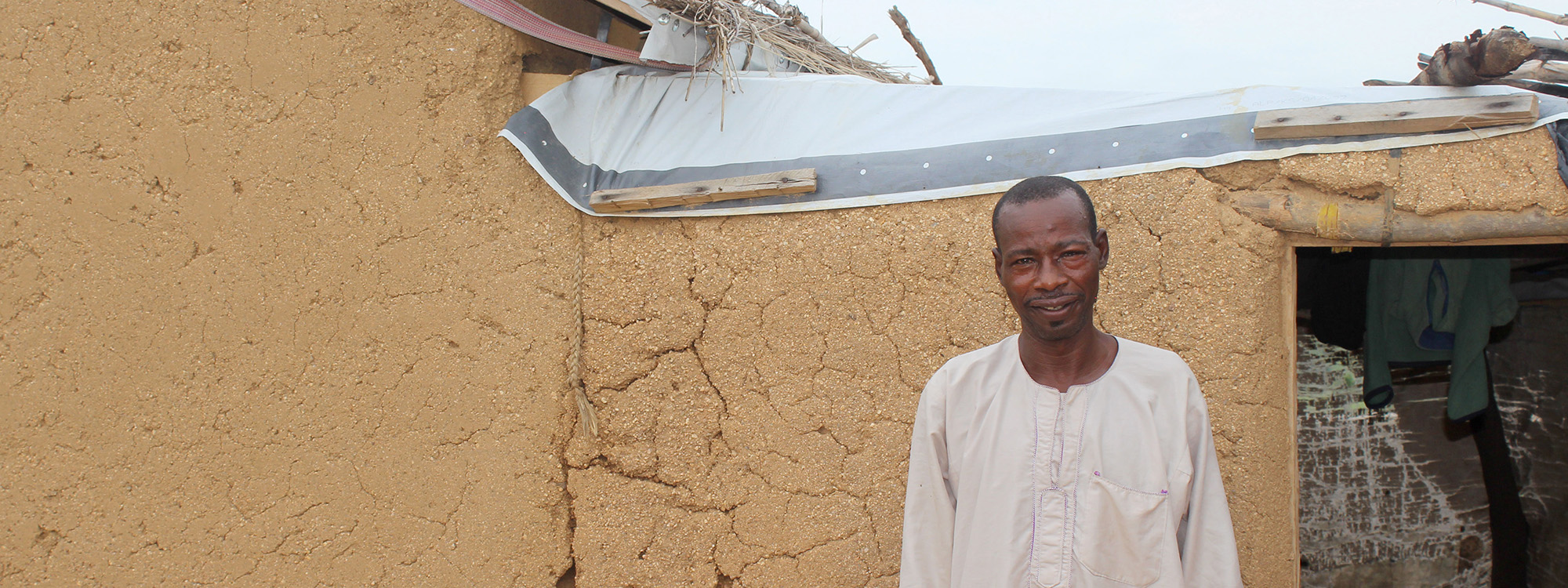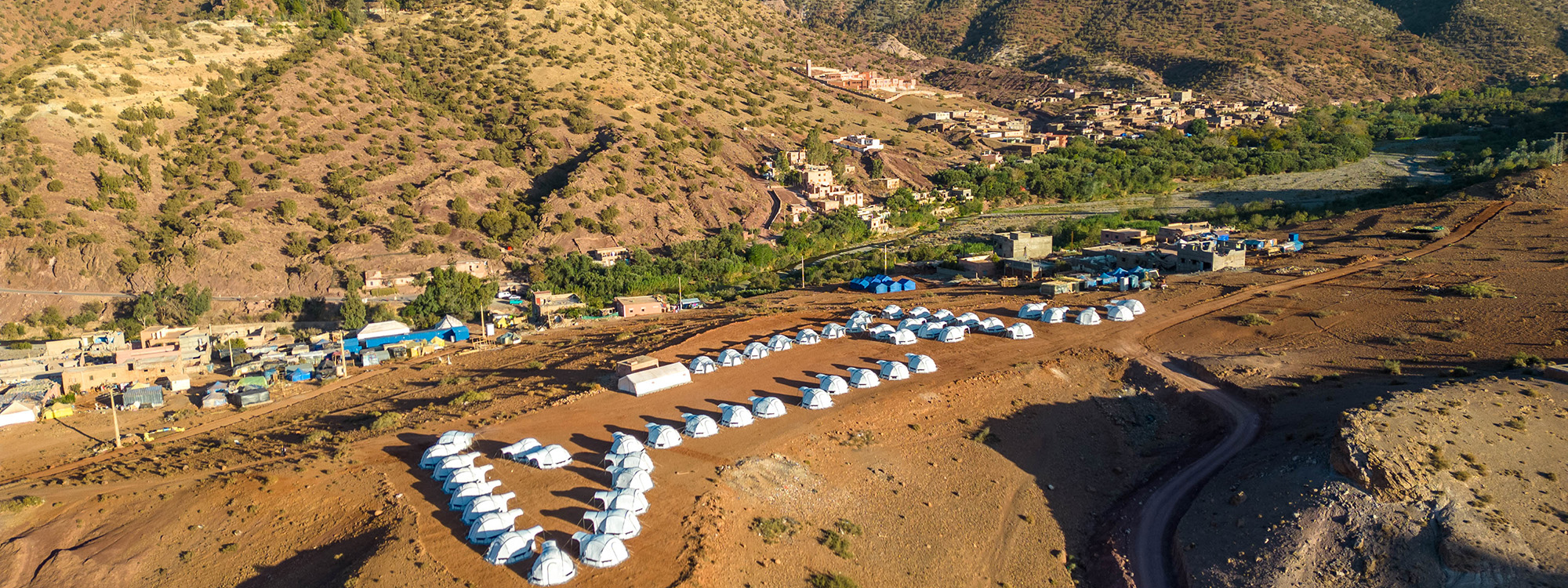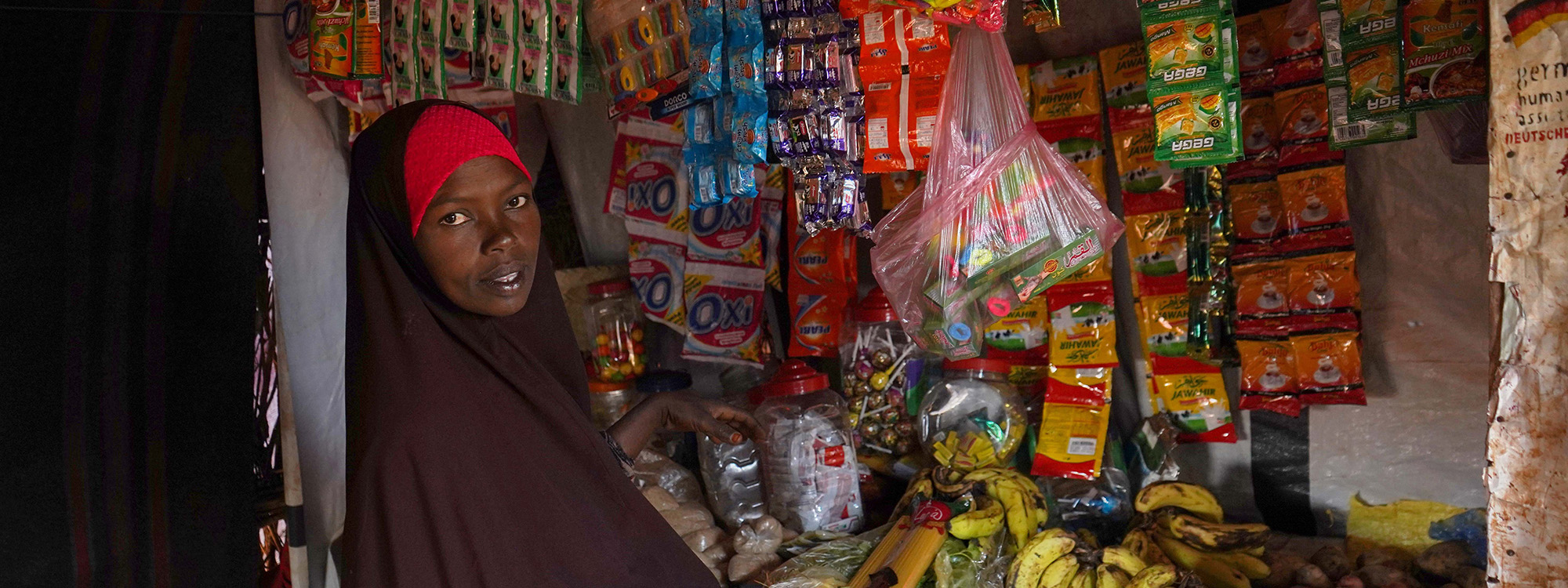
Blog
Responding during a pandemic – Working in partnership is in our DNA
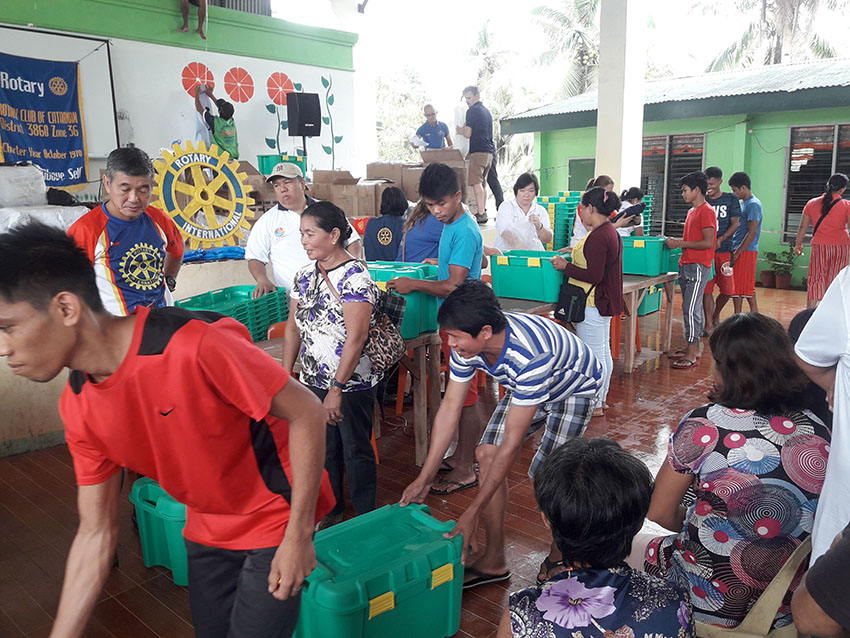
At ShelterBox, the idea that we can’t do it alone is central to who we are. We have always focused on building lasting relationships and powerful partnerships so we can support the people who need us in the way that is right for them.
We need our partners now more than ever – and the feeling is mutual.
During the coronavirus pandemic, travel restrictions mean that collaboration with partners has never been more important. Disasters don’t wait – and now families who have faced disaster are also facing this new and deadly threat. The need for our support has never been greater.
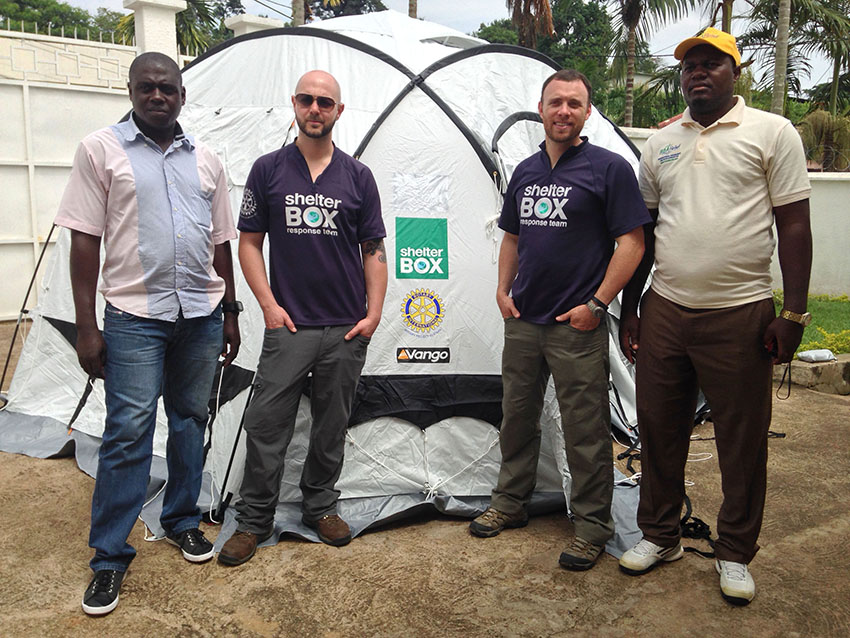
When we work together with partners, we each play an essential role in making sure disaster affected communities receive the help they need.
ShelterBox is one of the few emergency shelter specialists in the world.
When disaster strikes, communities often need many types of support. Emergency shelter is our focus, but other needs can include WASH facilities (water, sanitation and hygiene), food or healthcare. Many agencies will often come together to add their expertise to a coordinated response. ShelterBox is recognised in the humanitarian sector for our world-leading technical and specialist expertise in emergency shelter. Our staff and volunteers have specialist skills that many larger organisations don’t have. We are valued for being flexible enough to work side by side with partners, we provide training not only for the communities we support but also for local partners who will provide longer-term support when we are no longer there.
Our partnerships are based on mutual trust and respect
Every time we respond to a disaster, we always evaluate the quality of our aid by asking the families how it has worked for them. By listening to their feedback, we have been able to constantly evolve our shelter aid items to be most suitable, quality items that people need. This family centred approach and attention to detail is one of the reasons we are so well respected in the humanitarian community.
We provide an in-depth understanding of what works in different emergency situations. Over 20 years of disaster experience helps us to efficiently work through challenges and come up with solutions in wide ranging scenarios.
We also provide training for partner teams on how best to use the items we provide. In return, we benefit from our partners’ local presence, their knowledge of communities and their in-country connections. They have a detailed understanding of exactly where affected communities are and how to reach them. By working as part of a group of agencies, we can collectively better support disaster-affected families.
We work with organisations who share our mission
We partner with all kinds of humanitarian and international development organisations, as well as local governments in the places where we’re working. From localised specialist organisations based in one country to large organisations providing support across many countries – we always make sure that we work with organisations who share our mission to support people who have lost their homes to disaster.
Our partners help us provide support to disaster-hit communities in some of the most remote and dangerous conflict zones around the world. And now, during the coronavirus pandemic, we are continuing to expand our work with partners until we are able to get our teams on the ground.
Our partners
Our partnerships ensure we can efficiently pool resources and support families around the world in the most efficient way.
Rotary
ShelterBox began in 2000 as a Cornish Rotary Club’s millennium project.
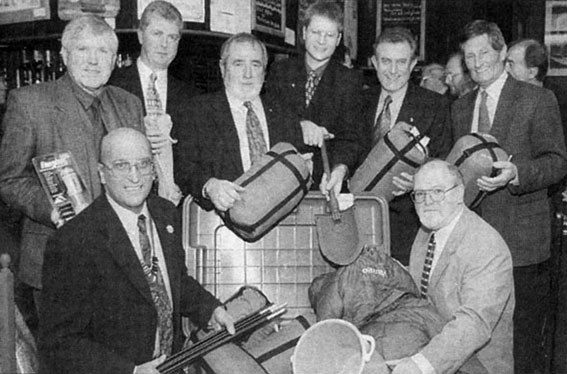
With the support of Rotary members and clubs around the world, ShelterBox has grown to become an internationally recognised, independent disaster relief organisation. Since 2012, ShelterBox and Rotary have been official Project Partners in disaster relief.
Whenever disaster strikes, Rotary is beside us – from the earliest planning stages to final evaluations, our partners help us to make contacts on the ground, organise logistics, and reach remote communities who might otherwise go without.
Each year, Rotary helps us to go further, support more people and access areas that would otherwise be impossible to reach. Read what we achieved in partnership with Rotary: https://www.shelterboxaustralia.org.au/rotary-international/
The International Federation of Red Cross and Red Crescent Societies
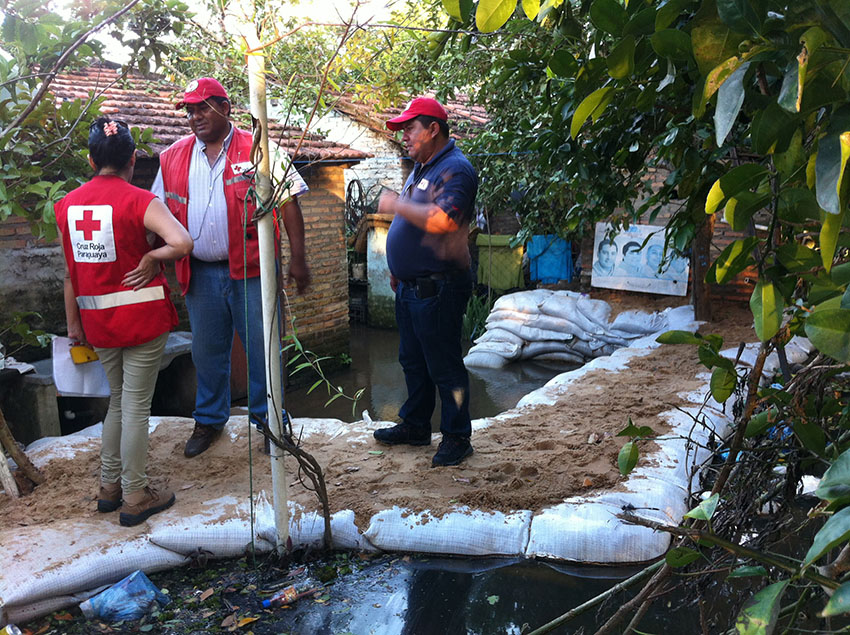
ShelterBox is one of the few organisations to have a global cooperation agreement with The International Federation of Red Cross and Red Crescent Societies (IFRC). This unique partnership lets us work closely with them to provide emergency shelter to vulnerable families after disaster.
Habitat for Humanity International
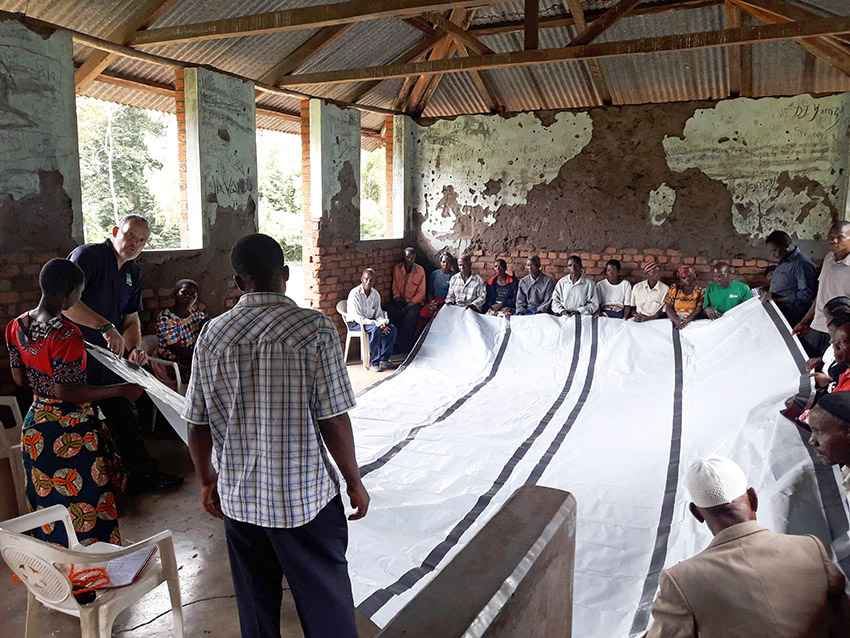
After many years of successful collaboration, ShelterBox also has a formalised relationship with Habitat for Humanity International. The agreement guides joint working during disaster responses where ShelterBox focuses on the initial emergency need for shelter after disaster, and Habitat for Humanity looks to the longer term for families and communities.
In Syria, we work with Bahar Organisation, Hand in Hand for Aid and Development and ReliefAid to provide aid to families affected by the ongoing conflict.
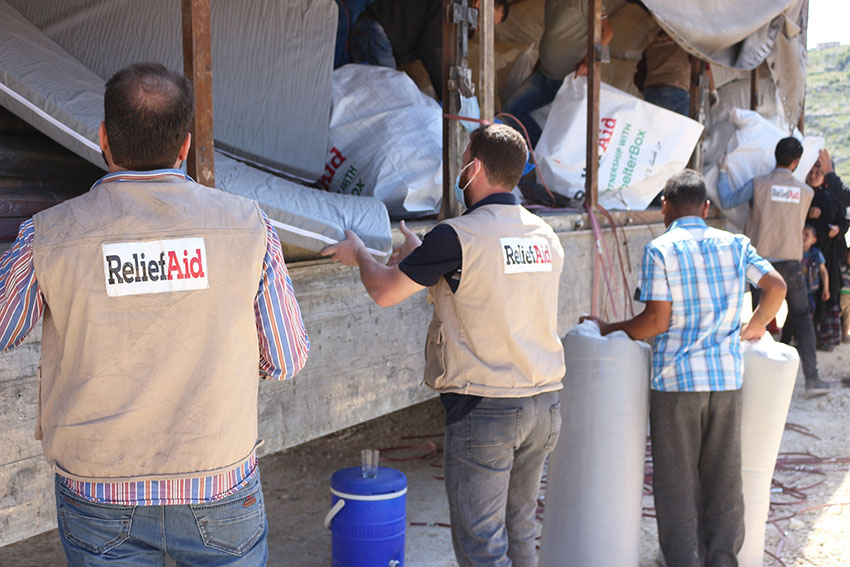
Other organisations we have worked with include IEDA Relief, ACTED, and Plan International – delivering projects in countries like Iraq and Nigeria, Cameroon, Ethiopia and Somaliland.


